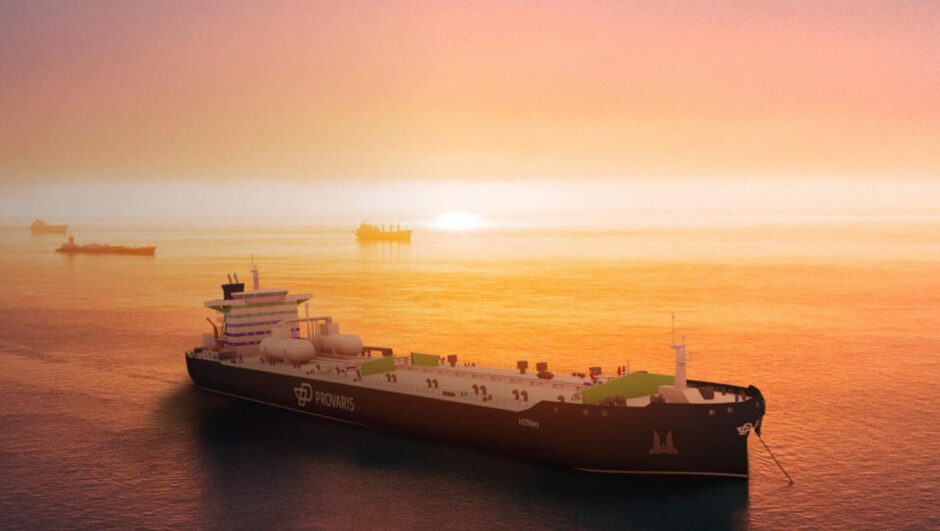 © Supplied by Provaris
© Supplied by Provaris Australian developer Provaris (ASX:PV1) has signed a memorandum of understanding (MoU) with Total Eren to examine import and export solutions for compressed hydrogen.
ASX-listed Provaris said the agreement would see the two co-operate on the development of projects that could eventually see the transport of green hydrogen from Total-led projects to markets in Asia and Europe.
These would use Provaris’ own proprietary vessel design. Dubbed Gaseous Hydrogen (GH2), these gas carriers are capable of carrying compressed hydrogen, and are currently designed on two variants, capable of carrying either 26,000 m3 or 120,000 m3 of gaseous hydrogen.
Part-owned by French energy major TotalEnergies, Total Eren develops, owns and operates a portfolio of renewable energy plants. It currently holds around 3.5GW of capacity in operation around the world, mainly in solar and wind, as well as a further development pipeline of some 4GW.
The group is also working on several large-scale green hydrogen projects, including in Latin America (Chile, Argentina, Brazil, Colombia), in Australia, and in Africa (Morocco, Egypt and Mauritania).
Alongside export opportunities for green hydrogen, Provaris said its co-operation with the develop will include evaluating a floating bulk compressed hydrogen storage solution, using its design concepts developed by Provaris.
Provaris said the two have identified “project opportunities” for further technical and commercial feasibility to be progressed.
The company is already involved in studies linked to the Tiwi H2 project in the north of Australia, and the HyEnergy scheme on the country’s west coast.
Provaris managing director and CEO Martin Carolan said: “Total Eren is an ambitious renewable energy company with a global portfolio of green hydrogen projects under development for import into markets that include Europe and Asia.
“Our discussions with Total Eren over time have identified a strong alignment on the commercial and technical benefits of compression for the storage and transport of hydrogen, and we look forward to a closer relationship to facilitate and accelerate the delivery of the first fleet of GH2 Carriers.”
The agreement follows news of a national tie-up between Germany and Canada last month which will see the two examine the feasibility of a transatlantic supply corridor for the green fuel.
However, some energy market observers are highly sceptical of such plans, not least when the technology is compared with incumbent gas transport options such as liquefied natural gas (LNG).
Hilarious. Any engineer can tell you hydrogen is not like LNG. 30% energy lost in liquefaction; 38% of the volumetric energy density; 6x the boil-off; embrittles; -253C; etc. Transport cost 2-3x production cost? No more than homeopathic quantities of H2 will ever move by ship. https://t.co/qZojKtSyH7
— Mïchael Lïebreïch (@MLiebreich) August 24, 2022
Liebreich Associates chief executive and BNEF founder Michael Liebreich called the Canada-Germany plans “hilarious” and suggested the transportation costs would be two or three times the cost of hydrogen production.
“There are lots of reasons we need clean hydrogen,” he added. “The point is, transporting hydrogen by ship is not going to be a thing. We need to focus on serious solutions.”
